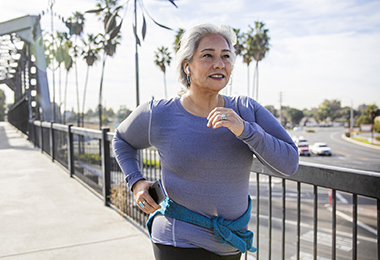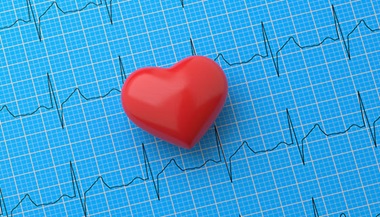Atrial Fibrillation Symptoms
Some people with atrial fibrillation (Afib) don’t have any symptoms at all. You might not even know you have the condition in which your heartbeat is irregular and too fast. Afib may be detected during a physical examination or during a test for another medical condition. But others experience signs and symptoms of Afib occasionally or frequently.
Afib Symptoms
Signs and symptoms of Afib usually result from the effects of the heart not pumping as well as it should. Poor blood supply to the heart or the rest of the body can cause a variety of symptoms that may seem unrelated.
If you have Afib, you might experience one or more of the following symptoms.
Chest pain or pressure (angina)
Angina is chest pain caused by a reduced blood supply to the heart. It may feel like pressure or squeezing. The pain may spread to the upper back, arms, neck or ears. Angina may last for a while or come and go. You may get some relief by resting.
If you have episodes of angina, pay attention to these factors. Write them down and share them with your doctor:
- What causes the pain?
- What does it feel like?
- How long does it last?
- Does anything make you feel better?
Afib chest pain can be similar to the chest pain that occurs during a heart attack. Seek medical attention right away if angina:
- Changes suddenly
- Happens unpredictably
- Happens even when you’re resting
- Lasts longer than usual
Dizziness or fainting
When your heart isn’t functioning properly, the rest of your body — including your brain — may not get enough blood. The lack of blood supply can cause dizzy spells or lightheadedness. Afib dizziness may be mild or severe, and may cause nausea or vomiting. Severe episodes can even lead to temporary loss of consciousness, known as fainting or syncope.
If you feel dizzy or faint, sit or lie down. This may help you feel better and can prevent injury from falling.
Dizziness and fainting are symptoms of many different medical conditions, including Afib. Track the episodes and report them to your doctor.
Fatigue or weakness
When your heart isn’t pumping efficiently, it can’t provide enough oxygenated blood to the rest of your body. This lack of blood supply can cause fatigue, even when you’re resting or being only slightly active.
Everyone gets tired from time to time, but the fatigue that accompanies a heart condition like Afib is often described as:
- Constantly tired
- Drained
- Exhaustion
- Extreme tiredness
- No energy
The fatigue might be long term, or you might feel an intense exhaustion after an Afib attack.
Palpitations
Many people experience palpitations — noticeable feelings in your chest from an irregular heartbeat — during episodes of Afib.
Different people experience palpitations differently, but they’re often described as:
- Banging
- Fast heartbeat that comes on suddenly
- Flip-flopping
- Fluttering
- Heart skipping a beat
- Loud heart sounds
- Pounding
- Racing
- Thumping
Shortness of breath
When the heart doesn’t pump blood as it should, fluid can build up in the lungs, making it harder to breathe. Afib can cause shortness of breath — even when you’re resting or during simple, everyday activities.
People describe Afib shortness of breath as feeling:
- Breathless
- Heaviness in the chest or lungs
- Like an anxiety attack
You may get relief if you:
- Breathe into a paper bag.
- Hold your breath for 10 to 15 seconds.
- Sit down and try to relax each of the muscles in your body.
- Use pursed lip breathing: Inhale through the nose with the mouth closed. Then exhale slowly through the mouth with your lips puckered like you’re about to blow out a candle.
AFib Treatment at Johns Hopkins
- Heart disease specialists oversee your care.
- Treatments are informed by the latest research.
- Care available throughout the Baltimore and Washington, D.C., metro areas.

Afib Symptoms at Night
Afib episodes can occur any time of day or night. Nighttime Afib can have different symptoms than a daytime episode, because you’re at rest. You might also notice Afib at night more easily if you’re resting or being quiet.
Nighttime signs of Afib include:
- Breathing heavily in your sleep
- Experiencing night sweats (excessive sweating while you sleep)
- Waking up with an odd sensation in your chest
- Having feelings of anxiety when you wake up
Many people with Afib also have sleep apnea. If you experience Afib symptoms at night, talk to your health care provider.
What to Do if You Notice Atrial Fibrillation Symptoms
Over time, Afib can contribute to heart attack or heart failure. It can also cause serious complications, such as blood clots and stroke. If you’re experiencing Afib symptoms, keep track of them and talk to your health care provider.
When to Seek Medical Attention
If you have Afib, learn to recognize the signs of a stroke so you can seek emergency medical care. If you experience any of the following symptoms, call 911 or go to a nearby emergency room to seek medical care immediately.
- Face drooping
- Confusion
- Difficulty talking, such as slurred words
- Dizziness or problems with balance
- Numbness or weakness in the face, arm or leg, particularly if it’s only on one side of the body
- Severe headache or trouble with vision






